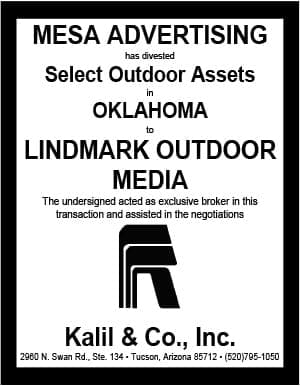
Just when I thought the often heated debate and endless negative commercials for the midterm elections were finally over, my buddy practically ruined my recent golf game by asking during our round how the Alex Jones defamation verdicts over $1 Billion can be reconciled with the dismissal of Trump’s lawsuit against Clinton and others. After all, he argued, doesn’t the First Amendment protect all citizens, so that they can say or write practically anything they want, regardless of their political leanings. And, if so, how can Alex Jones be adjudged liable for over $1 Billion in defamation damages, when Trump’s lawsuit against Hillary was dismissed, deemed frivolous, and his lawyers were sanctioned for filing it.
By now, you’re undoubtedly familiar with these headlines, which at first glance don’t seem to affect the billboard industry. Alex Jones and his website Infowars have now been held liable by juries in Texas and Connecticut for the staggering sum of over $1.44 Billion. The plaintiffs in these trials were the families of the 20 first graders and six educators murdered in the Sandy Hook massacre, who Jones had maliciously and falsely characterized-and, in a defamatory manner according to the courts- as “crisis actors” staging the event to promote gun control legislation.
Former President Trump did not fare as well in his allegations of defamation and similar wrongdoing against Hillary Clinton, James Comey, Adam Schiff, and other officials he alleged conspired to spread disinformation about Russian Collusion designed to rob him of the presidency. The Federal District Judge dismissed Trump’s case in September, calling it “a 200 page manifesto outlining his grievances against those that have opposed him, and this Court is not the appropriate forum.” And, this month, the Judge ordered the attorneys who filed “these … political grievances masquerading as legal claims” to pay legal fees and court costs of $66,000.
So, my golf opponent concluded, the only explanation for the vastly different consequences of this exercise of First Amendment speech must be attributed to liberal juries and judges going unchecked. Well, not so fast. In reality, Alex Jones was adjudged liable for defamation because of his repeated abuses of discovery and court orders in the judicial proceedings, such as refusing to produce required documents or testimony. The juries were not even asked in either his Texas or Connecticut trials whether he had defamed the Sandy Hook plaintiffs. Instead, such a finding was deemed against him by the Trial Judges in the cases, leaving with the juris only the actual and punitive damages Jones owed for such defamation.
And, further, defamation is actually a difficult legal claim to establish in litigation. Indeed, case law has developed largely in deference to the First Amendment and Right to Speech protected by the Constitution that malice must be found in addition to mere false claims to adjudge one liable for defaming a public official. I have written previously and often on defamatory messages displayed on billboards, and what the operator can display, or refuse to display on his billboards. For example, see my Billboard Insider article Rothfelder of Defamatory Ads, and the power point I presented at the Fall 2018 IBO Conference Objectionable or Defamatory Messages Displayed on Billboards: What the Operator can Refuse to Display, and How He can Protect Himself. In short, billboard operators can choose to accept or decline advertisements and messages, to be displayed on their privately owned billboards located on privately owned land, at their discretion and without significant legal restrictions. In every case, common sense should be used to avoid invasion or privacy or copyright violations, and sometimes there’s an obligation to post ads on established Public Forums.
My last, and probably most accurate bit of advice: avoid these discussions on the golf course.
[wpforms id=”9787″]
Paid Advertisement

















